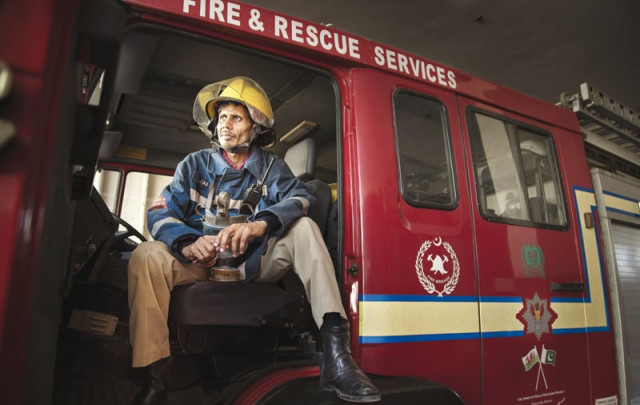I ‘heart’ Karachi: The saviours of the city
Chinoy’s latest documentary features the unsung heroes who keep the city from falling apart .

Karachi is an unforgiving city. At best, the city’s streets are unrelenting and unwelcoming; at its worst, it can make even the bravest want to run away.
But in the midst of all this madness are those who keep the wheels turning: the unsung heroes who put their own lives at risk for the sake of others, not because they owe anything to the city but because their hearts simply don’t allow them to leave.
The multi-million dollar question is: What is it that makes them stay? What reward do they seek for waking up each day and going through the ordeal of doing the most gruelling jobs that ultimately preserve the city’s sanity?
Award-winning documentary maker, Sharmeen Obaid Chinoy, decided to investigate. The five-part documentary series looks into the lives of a firefighter, a journalist, an official of the bomb disposal squad, a polio worker and the head of the largest emergency centre in the city.
So what is it that makes these people stick around, we asked Chinoy. “For some, it is the sheer madness that has become a part of their daily lives,” she says. The adrenaline rush that the city provides in abundance has become an addiction for these people. “For others, it is simply their love for Karachi.”
But what is it about Karachi that they love so much, that even though they witness its cruelty and spitefulness day in and day out, they simply refuse to leave. Chinoy explains this beautifully: “In their professions, they come face to face with the dark side of Karachi every single day. But in all that darkness, they are able to see hope for a better tomorrow.” This hope is what makes them get out of bed every day and return to their jobs.
According to Chinoy, the documentaries include the life stories of a firefighter who was badly injured while tending a fire; a bomb disposal squad expert who has seen his part of the crazy the city throws out at its citizens and a polio worker who was killed (the documentary was filmed before the killing).
The film is an attempt to bring to light the efforts and sacrifices of these people who otherwise go unnoticed. “The layperson often doesn’t give these people a second look,” she says. Among them, they hold the key to changing the future of the city.
Published in The Express Tribune, August 27th, 2014.



















COMMENTS
Comments are moderated and generally will be posted if they are on-topic and not abusive.
For more information, please see our Comments FAQ